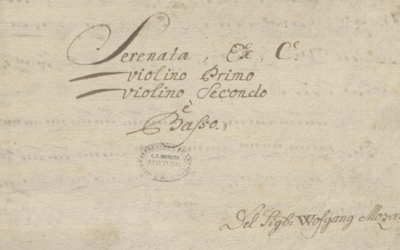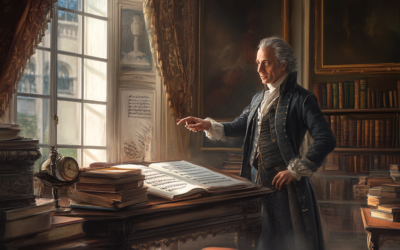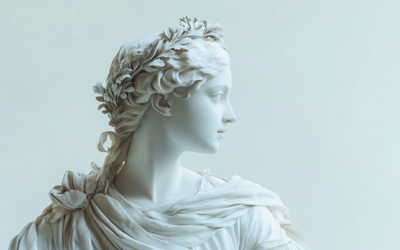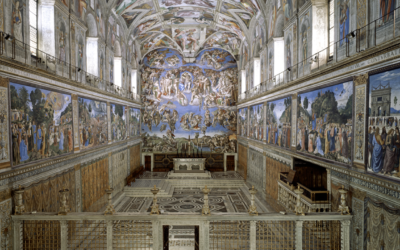Mozart's K 73A
A Mystery Wrapped in Ambiguity
The aria K 73A, listed in the Köchel catalogue as a work by Mozart, remains an enigma. With scant evidence, vague references, and no autograph to confirm its authenticity, one must wonder how such a piece earned a place in the prestigious catalog.
Mozart in Italy: The Untold Story
Was Mozart truly a solitary genius, or was he merely the instrument of his father’s ambition? “Mozart in Italy” challenges the conventional narrative, revealing a complex dynamic between father and son that shaped the course of music history. Prepare to question everything you thought you knew.
“When a name becomes a brand, the truth about its products tends to be obscured.”
Mozart in Italy
The aria “Misero tu non sei” (Wretched thou art not) is listed in the Köchel catalogue under Mozart’s name, yet little is definitively known about it. What we do know is that the text—”Misero tu non sei”—is borrowed from Metastasio’s Demetrio, a detail that leaves no room for doubt about the real author of the libretto. But the supposed composer? That’s where things get murky.
A lone reference in a letter dated January 26, 1770, where Mozart casually mentions starting the aria, offers no further clarification. Whether he was composing it for himself or copying it from his father remains entirely speculative. No manuscript has ever surfaced to authenticate Mozart’s authorship, and the aria’s precise instrumentation, key, and movements are as elusive as its origins. Yet, despite this glaring lack of solid evidence, it continues to hold its place in the official catalogue of Mozart’s works, under the designation K 73A.
Why, then, does this aria persist in being associated with Mozart? The answer likely lies not in musical innovation or compelling historical documentation, but in the strength of the mythos surrounding Mozart’s name. The absence of an autograph, the speculative nature of the evidence, and the questionable provenance should render this aria a footnote at best, yet it occupies an oddly secure spot in the annals of his supposedly vast oeuvre.
As is often the case with works attributed to Mozart, the true nature of this aria becomes less about its merit and more about its association with a figure whose name has, for centuries, been enshrined as the pinnacle of musical achievement—an association that may be more about preserving an image than accurately cataloguing historical fact. The inclusion of K 73A in the Köchel catalogue is less a testament to Mozart’s compositional prowess and more a reflection of the enduring power of Mozart’s legend, for which musical truth is often a secondary concern.
At the end of the day, Misero tu non sei may serve as yet another example of how Mozart’s name—regardless of the evidence—continues to overshadow the true origins of many pieces, a legacy built not just on music, but on myth.
You May Also Like
Mozart’s Serenade? A New Discovery? Really?
In Leipzig, what was thought to be a new autograph of Mozart turned out to be a questionable copy. Why are such rushed attributions so common for Mozart, and why is it so hard to correct them when proven false?
Mozart’s K 71: A Fragment Shrouded in Doubt and Uncertainty
Mozart’s K 71, an incomplete aria, is yet another example of musical ambiguity. The fragment’s authorship, dating, and even its very existence as a genuine Mozart work remain open to question. With no definitive evidence, how can this fragment be so confidently attributed to him?
Unpacking Mozart’s Early Education
The story of Ligniville illustrates the pitfalls of romanticizing Mozart’s early life and education, reminding us that the narrative of genius is often a construct that obscures the laborious aspects of musical development.
The False Sonnet of Corilla Olimpica
Leopold Mozart’s relentless pursuit of fame for his son Wolfgang led to questionable tactics, including fabricating a sonnet by the renowned poetess Corilla Olimpica. This desperate attempt to elevate Wolfgang’s reputation casts a shadow over the Mozart legacy.
A Farce of Honour in Mozart’s Time
By the time Wolfgang Amadeus Mozart received the Speron d’Oro, the once esteemed honour had become a laughable trinket, awarded through networking and influence rather than merit. Far from reflecting his musical genius, the title, shared with figures like Casanova, symbolised ridicule rather than respect.
The Legend of Mozart’s Miserere
The enduring popularity of the narrative surrounding Mozart’s Miserere highlights the allure of the prodigy myth, but as we peel back the layers, we uncover a more nuanced picture of his life and the musical landscape of the time. The reality often contrasts sharply with the romanticized tales that have shaped our understanding of his genius.







